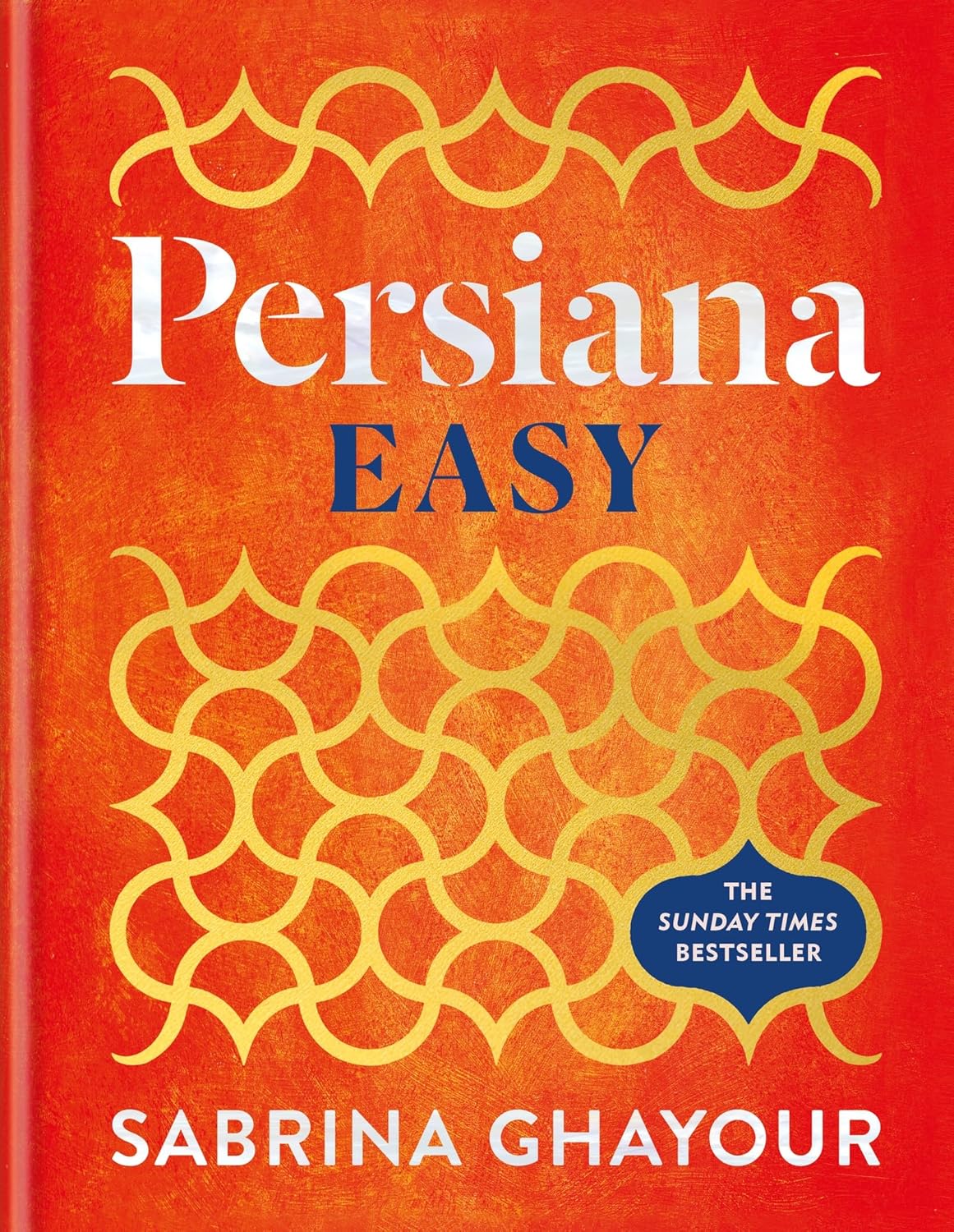
British-Iranian chef Sabrina Ghayour reckons many Persian dishes can be made much simpler for home cooks. “Lots of stuff is just shrouded in tradition, and tradition can go back generations to when they didn’t have electricity or didn’t have commercial cleaning of food. So, why is it essential to have four pots on the stove for a Persian stew? No, I’ve done it all in one pot and it works.”
The 49-year-old, who shot to critical acclaim with her debut cookbook Persiana in 2014 and has since published seven more, adds: “Auntie would say, ‘I’m telling you, I’ve been doing this for 45 years.’ You get told by your mother you cannot do this any other way and then someone like me comes along, who is a bit lazy and loves a shortcut.
“I’m thinking, ‘Why can’t you do it this way? Screw it, we’ll try it.’ That’s how a lot of my Persian and traditional recipes are perfected.
“I know what changes I can make and which would compromise flavour and which wouldn’t, so I’m thinking, let’s make it easier. We don’t need to soak rice 500 times.”
Her latest cookbook, Persiana Easy, sticks to the Persian food we know and love her for (think brunch kuku, mutton raan and polow), alongside dishes from near and not-so-near regions, like Lebanese hashweh next to Pakistani-style ciryani, Indian smashed crispy potato chaat and Egyptian koshari. But this time, stripped back and simpler.
Ghayour’s food is often cited as Middle Eastern, but the term doesn’t always feel right to her. “It’s not that I don’t like it, it’s just a bit broad. It’s like calling English food European,” she suggests. “I just think sometimes we generalise it and go, yeah, the Middle East. Because idiots like me cook recipes from Morocco and Turkey, and then they get batched in with my books. Of course, neither of them are in the Middle East.”
Her recipe ideas do derive from far and wide, though; “My uncle’s Pakistani, my other uncle is Afghani – I grew up with all influences… there’s a lot of Persian influence in lots of other countries. We got around, the Persian empire.”
Self-taught from the age of five (“My mum can’t cook at all, no one taught me, I just watched telly”), Ghayour grew up trying things out in the kitchen, eventually launching Sabrina’s Kitchen supper clubs from her London flat, and is now a regular on BBC1’s Saturday Kitchen as well as Channel 4’s Sunday Brunch.

The fact that she’s a home cook, rather than a professional restaurant chef, isn’t a disadvantage, though, she says.
“You’re providing value from what you’re asking [cookbook readers] to buy, if they don’t already have it – that’s because I’m a home cook, so when I do recipe tests that I’m staring at in my kitchen, and I realise that’s actually not a weakness, that’s a strength. I’m always using the same things in my kitchen. So that’s kind of given me confidence.”
She’s “not afraid” to use the same store cupboard ingredients over and over again. “Sometimes you’ll have recipes of mine that will maybe have, let’s say, eight ingredients, but six of them are the same. The key ingredient and something else is different. They taste totally different to one another,” she says. “I used to think that made me a bit of a charlatan or an imposter, and then I realised, actually, that’s really good because people [at home] are using the same ingredients. So you’re asking them to buy and they’re using them up.”
The most important things are probably already in your pantry anyway, including good sea salt (“Good salt makes everything taste good in the absence of any other spice”), pepper (“a very key spice – I use it as more than just a seasoning”), chilli flakes, oregano, garlic granules and curry powder, she suggests.
“In God’s honest truth, most of the Persian and Middle Eastern ingredients are readily available in supermarkets – and yes, in the last 10 years, pomegranate molasses, sumac and all these things have been added to that.”
Now based in York, Ghayour tied the knot in 2021 and became part of a bigger family. “After Covid and getting married and now a stepmum, life has changed.
“I literally cook every single day, I cook three meals every day.
“We all have less time, we all have less money, we all have people to feed – there’s so many reasons to keep things pared-down as much as possible. I’m certainly more pared-down [rather] than hunting after the authentic version of something.”
So many of her recipes are easier versions of classics, while others are entirely made up – take the hummus soup, for example. “I’m always trying to come up with soups because we’re a big soup house, especially my mother and mother-in-law, they live off soup.
“I think any cuisine that you haven’t done before, people will perceive to be difficult to make,” Ghayour says, but her aim is to provide a calming voice in the kitchen.
“Because cooking is confidence. It’s not even about the food, it’s about how straightforward was it for me to convey my recipe to you? Calm you down in the process, tell you there’s nothing to worry about, you don’t need to do this, you don’t need to do that. It’s fine.”
“I’ve purposely written that calm into every intro in all of my books.”
‘Persiana Easy’ by Sabrina Ghayour (Mitchell Beazley, £28).







